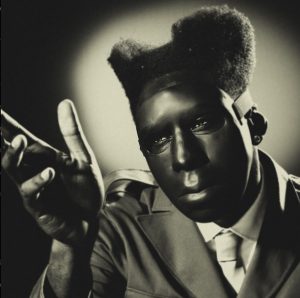Midterm Roundup: Trump’s Vindication, Democrats Take the House, and Recount #2 in Florida
November 20, 2018
The midterm elections are always of immense importance to the nation as they tend to define the second half of the president’s term. This year more than any in recent history, has been surrounded by controversy, close races, and media attention. Here’s what you need to know from Tuesday’s voting.
Democrats Take the House, Lose the Senate
About a month ago, Judge Brett Kavanaugh was confirmed as a Supreme Court justice. The Democratic Party anticipated a “blue wave”, based off an involved electorate, and disapproval for President Trump and his nomination, that would carry them to regain control of both chambers of Congress. But, their hopes exceeded the reality, as a strong campaigning effort by the Republican Party countered the democratic excitement. This resulted in not just a maintain of Republican control in the Senate, but they actually gained a seat. But, the House of Representatives was a different story, as the Democratic Party made it a point of emphasis to have well-qualified candidates and to back them whole-heartedly. It paid off, as their campaign efforts led to their emphatic victory in the House of Representatives, gaining twenty-seven seats, and securing the majority. This split Congress may mean that President Trump’s window for drastic administrative moves has closed.
Recount in Florida II
In the election of 2000, George W. Bush and Al Gore were entrenched in a tight race, where a recount was called in the state of Florida. The legality of the recount was questioned and brought before the Supreme Court, leading to a dramatic national debate. Although not as dramatic, there has once again been a recount called for in Florida, mainly pertaining to Broward County. This recount could affect the results of the race for Governor (Andrew Gillum(D) v. Ron DeSantis (R)) and the race for Senate (Bill Nelson (D) v. Rick Scott (R)). Whether the results of either race are flipped, this recount results in greater questions about the efficiency of the American electoral system. Why does America continually have these problems, and how can the nation go about fixing them? These are the questions that will be heavy in the mind of politicians for years to come.
Question 4 in Florida
Florida is always a battleground state in national elections, never leaning too far to the left or right. Recently, the state has gone largely red due to the high amount of retirees and senior citizens who have a tendency to vote Republican. But, Question 4 on the Floridian ballot may have turned the tables in this crucial state. The question related to whether felons who have been released from prison should be allowed to vote. With over a sixty percent majority, Amendment 4 was passed, giving over 1.4 million prior felons the right to vote. Most of these felons are minorities, expected to vote blue, which has the potential to establish Florida as a democratic stronghold. Amendment 4 being passed may have altered the future of national elections for years to come.
Mr. Trump Being Mr. Trump
Former Boston Red Sox player Manny Ramirez often was associated with the phrase “Manny being Manny”. This was because he frequently did questionable things unlike any baseball player prior to him, but it was just shrugged off as Manny being Manny. Similarly, Mr. Trump has developed a tendency of unapologetically establishing new standards for the Oval Office. These new standards often come with a lot of controversy, and questionable actions on the President’s part. The midterms were no exception. Following the results of the election, Mr. Trump held a press conference that lasted over an hour and a half. It began with the Commander in Chief calling the midterms a victory, claiming the Republicans mission had been vindicated by the results of the elections. He spoke as though he hadn’t realized that the Republicans had lost the House of Representatives, and showed zero signs of defeat in the press conference. While the reporters were asking questions, CNN’s renowned White House correspondent Jim Acosta was handed the microphone and asking a series of questions that Mr. Trump did not take well. He responded with a bombardment of insults directed at Acosta and CNN until a White House intern was sent to take the microphone away from Acosta. Acosta politely refused to give up the mic initially, until eventually he caved and handed it to the intern. Later that night, his White House credentials were removed, as a result of him “placing his hands on a young woman just trying to do her job as a White House intern,” according to White House Press Secretary Sarah Huckabee Sanders. This action by Mr. Trump is not entirely unprecedented for him, but this is a new level, and it raises a key question. How far is too far in Mr. Trump’s antagonization of the press?
https://www.cnn.com/election/2018/results
https://www.nytimes.com/2018/11/16/business/media/cnn-acosta-trump.html
https://www.senate.gov/senators/index.htm
https://www.floridatoday.com/story/news/2018/11/15/felons-voting-rights/1945824002/






